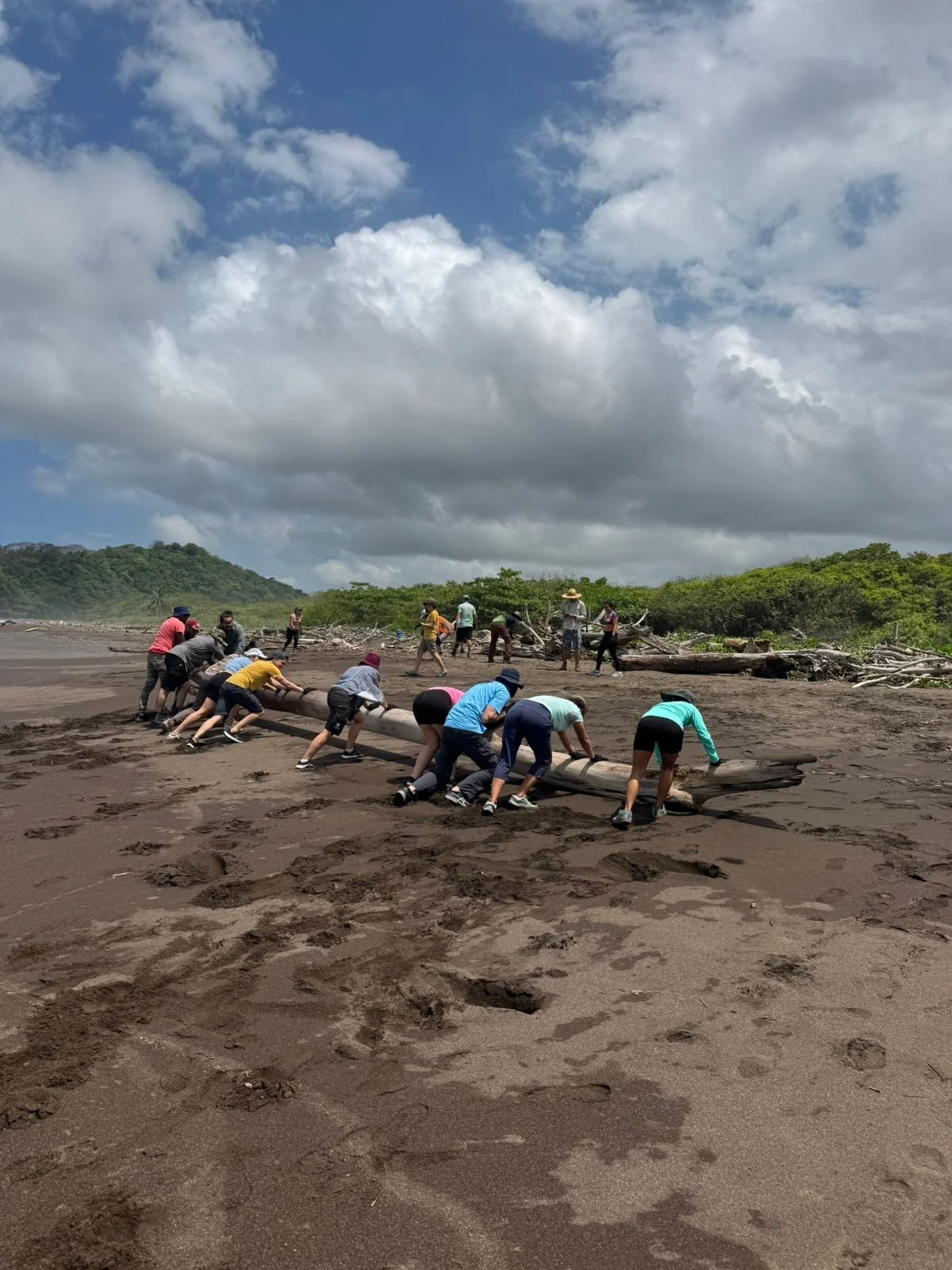Decolonizing Travel in the Age of Climate Crisis: Lessons from Community Work in Costa Rica
By Diego Amey Fonseca | August 1st 2025
What is Climate Change?
Climate change has become one of the most important issues among the international discussions during the 21st Century. The actual and potential implications of climate change effects have been discussed by the scientific community, politicians and business owners in all parts of the world.
The Intergovernmental Panel on Climate Change is a body of experts created by the United Nations that reunites professionals from all over the world to assess scientific studies about the causes, potential impacts and possible strategies to address Climate Change. On the Synthesis of the Sixth Assessment Report, the IPCC has defined climate Change as a “threat to human well-being and planetary health”. (IPCC, 2023)
Eventhough the international community has made long efforts to mitigate climate change and its impacts and to adapt the countries to the actual reality, there are still big challenges in terms of the Climate-Related Risks. The IPCC highlights the urgency of integrated climate-action in which it becomes imperative for their to be international cooperation “including improved access to adequate financial resources, particularly for vulnerable regions” (IPCC, 2023)
What is decolonizing Travel?
On the other hand, tourism is part of an industry that –intentionally or not- impacts Climate Change in different ways. The flights, the gas emissions, and the environmental impact of the buildings that comes to new touristic destinations and even the consequences of the very famous concept of the last months: gentrification; are part of the issue.
In this context, the concept of decolonizing travel take a high importance as a way of addressing historical inequaties. A simple way to understand the word “decolonize” would be to undo the colonial process. The objective of the decolonial concepts relies on reversing the colonial control and influence over territories, and the decolonial theories understand that colonialism is not only as an economic relationship, because colonial legacies can be found in education, language, culture and knowledge production. Also, these theories are interested on showing the ways in which the historical processes affects some communities more than others.
Decolonizing travel takes an ethical position in terms of the tourism and develops ways of tourism in which the environmental and social equity are placed as important factors. Decolonizing travel will also support sustainable tourism with responsible travel, in which the respect for local knowledge, culture, and marginalized communities is a key.
Decolonizing travel proposes community-based ecotourism, such as regenerative tourism in which the reduction of climate impact and the redistribution of the benefits is a goal. Another important detail is that the decolonizing travel understands that there are communities that have been historically excluded from the benefits of some economical activities, and coincidently some of these communities are the ones that are more exposed to the the risks of climate chage, even though those same communities usually contribute minimally to global emissions.
Where to start? Community Service as a key for decolonizing travel.
To talk about decolonizing travel is very interesting and decolonial theories have become a popular topic around the academic and some political sectors, but the real challenge is to take concrete actions that can have measurable impacts. Something that Offbeat Travel consistently does is to link the touristic activity with Community Service in an ethical way.
Every year, Offbeat Travel advocates to create immersive experiences through sustainable tourism within the communities. Offbeat Travel creates meaningful experiences in which the contact between the traveler and the communities is central and the main objective is not only to create projects with measurable environmental impacts, but also to support development among the communities we work with. In 2024 alone, Offbeat Travel counted a total of 33,214 hours of community service contributed by students volunteers to different communities.
For the case of Costa Rica in 2024, there are 4 principal service areas in which Offbeat has focused the impacts of the Community Service:
Environment: 146 trees planted, 3207 eggs transferred to a hatchery, and 1 pollinator garden planted.
Infrastructure: 3 schools painted and 1921 square meters of tile installed.
Education Exchange: 37 local students and 4 adults attended to a Camp hosted by Offbeat (222 meals served to local students).
Water: 200 meters of pipeline installed and 200 meters of trench dug.
As a Program Leader, I witness how the communities are positively impacted by these types of projects and can say that the quantitative numbers alone do not do justice to the countless benefits that local communities gain from community service- such as cultural exchange, development of new skills, collaboration in projects that may help reduce crime, as well as recreation and enjoyment, which are no less important.
The community service take a crucial role in terms of adaptation to climate change, given that it provides the communities with benefits in terms of environment, education and services. This is also aligned with the United Nations Sustainable Development Goals (UNSDG’s) and have a direct impact on the creation of capacities and also in reducing the risks to Climate Change exposure.
I'm already excited to learn about the new data on the impacts of Offbeat`s decolonizing travel during summer 2025. Keep in touch for more updates!

